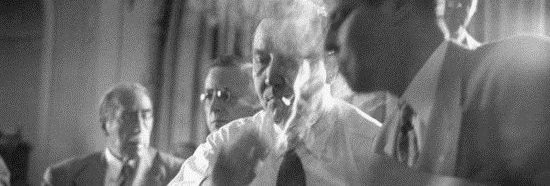Every April, hundreds of prospective students choose to pursue a Ph.D. in political science. The choice is an important and serious one that usually entails a multi-year commitment to a place, its professors, a set of people, and a program. For these reasons, many prospective students often struggle to come to a decision about what program to choose. Others have written extensively about the application process. However, we at The Smoke-Filled Room wanted to offer advice, from the perspective of political science Ph.D. students, exclusively about the process of choosing a Ph.D. program. To that end, we solicited our contributors for their advice. Here’s what they had to say:
Lionel Beehner, Yale
The best advice I received was to go into grad school with an open mind, cast a wide net, and find scholars whose work you like. I didn’t know what the difference between a R1 school or a policy-focused school was when applying (I probably should have), having already had a policy degree from SIPA and done some think thank and journalism work. I knew nothing about methods. I only knew I was interested in was security studies broadly conceived as well as civil wars. There is no such thing as a “perfect” school, since every program you apply to will entail tradeoffs. No grad student can “have it all.” But overall, you should get a keen knowledge of the program, its top scholars, and determine if the school is a good fit. Also, talk to as many grad students as possible, which I found was invaluable.
Matt Eckel, Georgetown
Think about the money, and not just yours. It’s probably not news that a guaranteed stipend can make a world of difference in the time, mental energy and caloric output you can dedicate to your academic work. It can be tough to stay focused on research when every semester brings a new search for rent and grocery money. If you are lucky enough to have multiple funded offers, though, don’t just consider what each department is offering you. Consider what it’s offering your future colleagues. How many get fellowships? How much funding is available on a semester or annual basis for those without guaranteed funding? This advice doesn’t come from some grad-students-of-the-world-unite sense of class solidarity (though if you’re inclined toward such thinking we should chat), but rather from intellectual self-interest. You’ll have a more enjoyable, productive, rewarding experience in graduate school if you’re surrounded by colleagues who can devote as much time, energy and attention to their research as you can.
